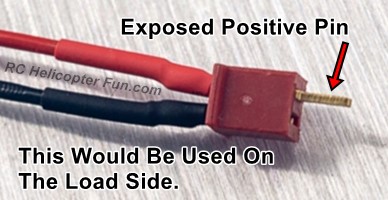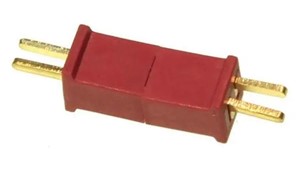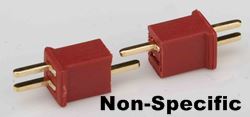The Micro Deans Connector: Small Connector That's Easy To Use.
by John Salt
Micro Deans Connectors, also called Deans Micro, Deans Mini and Deans Micro T-Plugs are a solid and robust little connector rated at about 10Amps.
I say "about" because depending on what spec page you look at, values are ranging from 5 Amps up to 10 Amps. I have pushed them to 12 Amps for sort bursts without issue.
You have to be very mindful of which pin is powered on the voltage supply/source side when using Deans Micro connectors.
You don't want the exposed pin to be the "+" on the voltage source/battery side because it will create a shorting hazard.
For this exact reason, you'll rarely find Micro Deans Connectors used on battery packs. They are used more for small electrical accessory connectors such as lights, sound systems / speakers, brushed motors on small/micro models, etc.
Deans Mini's are easy to plug & unplug for the most part and because they are "non sex specific" you only need the same plug to work as both male and female.
The friction of the male pin in the female receptacle slot is what holds them together with moderate force.

Micro Deans connectors are easy to solder the wires to, but you need to be careful of overheating the pins which will soften the connector housing.
As with any connector, the best soldering method on Deans Micro's is to pre-tin both the connector pins and the wiring, wait for the pins to cool after tinning, then apply the soldering iron tip to the tinned wire to solder and bond the wire to the pre-tinned pin of the Micro deans as quickly as possible to avoid overheating the housing.
Heat shrink is then used over the wiring to insulate the exposed solder joint afterward.
 Micro Deans Connectors "Connected"
Micro Deans Connectors "Connected"Because it's easy to overheat the pins, and soften the housing, I find having both connectors plugged together while soldering the wires on, helps keep the pin and receptacle in alignment to each other.
Links To Micro Deans Connector
For more helpful RC connector information & soldering tips, please see my RC Battery Connector Page.









